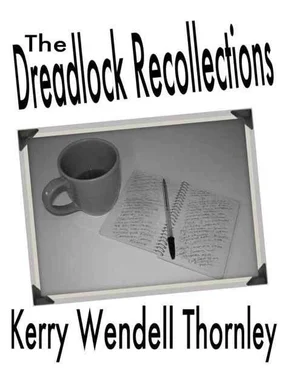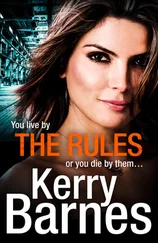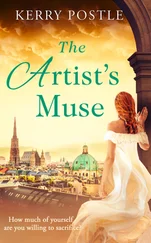That seemed to Brother-in-law a great source of amusement and he was to tell the same story many times; he seemed to find the follies of the Nazis as funny as he found their attainments admirable, which was disarming.
Later in the conversations he asked me once if I thought Rudolf Hess ought to be released from prison. I agreed that there was no purpose in keeping him jailed.
Over and over he was to remind me that there were many similarities between Nazi and Communist ideology, and that people attracted to one could frequently be recruited away to the other.
In my research, I found the diary of Paul Joseph Goebbels to be the most useful source of the types of quotations Brother-in-law said he wanted for his book, things that sounded worse than what Hitler had said.
He'd also told me to be sure to include anything any of them said against the Catholic Church, and these alleged writings of the Nazi Propaganda Minister were sufficiently anti-Catholic for that purpose.
In my own handwriting at the top of each folded-over page of letter-size paper, I dutifully wrote, "Hitler Was A Good Guy." Again in my own handwriting, I then proceeded to quote without comment all the most atrocious statements I was able to find by Goebbels and the other important Nazis. Unsuspectingly, I then turned these notes over to Brother-in-law. As I recall, he gave me ten dollars for my efforts.
Since in those days I was given to beginning writing projects with great optimism and enthusiasm and then abandoning them in favor of either a new inspiration or a more certain means of relating to the American economy, it did not strike me peculiar that Brother-in-law soon dropped further mention of his proposed magnum opus. For he seemed, if anything, even less reliable than me, what with his paranoid theories, his split personality, and his incessant repetitions.
Once or twice in our conversations he dropped a hint that he was actually "more like a mad scientist" than a Nazi or gangster, and he carefully planted the idea with me that his real name might be Tom Miethe. Since then I was led to believe that his true identity was that of a Canadian associated with the Permindex Corporation named Louis Mortimer Bloomfield. Yet the most credible suggestion, one made by an individual named Joel Thornton, is that I was in fact talking to the Watergate burglar, E. Howard Hunt; my memory of Brother-in-law closely resembles a 1959 photo of Hunt to be found in his autobiography, Undercover.
In their book, Coup d'teat In America , Michael Canfield and Alan J. Weberman (Third Press, Joseph Okpaku Publishing Company, New York, 1975) describe an interview with Seymour Weitzman, an eye-witness to John Kennedy's shooting who ran into the parking lot behind the grassy knoll after the shots were fired.
"In April 1975 Michael Canfield visited Weitzman in a home for aged veterans… Weitzman said he encountered a Secret Service agent in the parking lot who produced credentials and told him everything was under control. He described the man as being of medium height, dark hair and wearing a light windbreaker. Canfield showed him a photo of Sturgis and Barker. He immediately stated, 'Yes, that's him,' pointing to Bernard Barker."
Bernard Barker, of course, attained notoriety in 1972 as one of the Watergate gate break-in gang under Hunt's direction. Coup d'etat in America also contains reprints of the "tramp photos" of three suspects taken into custody by the Dallas police and then released mysteriously without record of arrest. These appear very much to resemble pictures of E. Howard Hunt and another Watergate burglar, Frank Sturgis, dressed in tramp clothing and walking across Dealey Plaza in police custody in the company of a third individual who could have easily been mistaken at a distance for Oswald and may have been used for that purpose, perhaps as sixth floor gunman.
Naturally I remain uncertain of his true identity. Strategies in the intelligence community are deep. Power is kept by carrying deception several steps beyond what any sane person might be inclined to suspect. Whoever he was, it is clear in retrospect that he employed all the professional techniques for covering his tracks.
Among the first and oddest things Brother-in-law was to bring up in our talks at his house were instances of freak radio reception. A woman had picked up a radio broadcast through her hair curlers. Every now and then, someone discovered their tooth fillings were sensitive to radio waves.
"Things like that actually happen," he said, "although rarely."
"Yes," I answered. "I think maybe once or twice it happened to me. A few months ago, when I was living across from Lafayette Square in a little room over Fred's Inn, I seemed to hear radio programs as I was drifting into sleep during my afternoon naps, with station breaks, news, commercials, weather reports and music. When I woke up afterwards, though, I couldn't remember the call letters of the station." Brother-in-law laughed and nodded, as if to indicate that, yes, he knew about that.
Since I had not discussed it with anyone, I dismissed his response as simply inappropriate. From such an unusual man I did not expect entirely comprehensible behavior at all times.
I neglected to add that I had also experienced audio hallucinations of a different nature when going to sleep at nights sometimes when I was in the Marines, during the interval I was serving with Lee Harvey Oswald in Marine Air Control Squadron Nine. I had written them off as a peculiar category of dreams. Nor did I tend to think that my radio program dreams experienced more recently had other than psychological causes.
I gathered early on that Brother-in-law had a penchant for the exceptionally bizarre, and that his mind tended to wander from one weird variety of trivia to another without the benefit of a healthy skepticism.
Sometimes I considered the possibility that the whole works was the creation of a secret society consisting of bald-headed conspirators, for I have heard it second-hand that all the names Brother-in-law used were those of balding men, a Fraternal Order of Bald Eagles, if you will, bent on no less sinister a project than the destruction of civilization.
In the Illuminatus! Trilogy, (Dell Books, 1975) a series of farcical novels by Robert Shea and Robert Anton Wilson that presents an essentially romantic view of the assassins, but seems to be drawn from inside knowledge about conspiracy politics, the hero named Hagbard Celine argues: "Civilization is privilege, or Private Law… And we all know where Private Law comes from… Out of the barrel of a gun, in the words of a gentleman whose bluntness you would appreciate."
Rich people like the Rockefellers, Gary took pains to remind me, pressure the government to make laws designed to make business difficult or impossible for their competitors.
I would acknowledge this, but was always quick to add that such examples of Private Law, so to speak, were not what was defined as pure laissez-faire, and I thereby dismissed the actual as inconsequential because it was not an aspect of our economic system Ayn Rand deemed worth defending.
Ayn Rand's novel, Atlas Shrugged , (Random House, 1957) had made a lasting impression on me when I read it in the shipping-out barracks in Japan and on board ship on my way back to the States. Her arguments for laissez-faire economics, delivered by her characters in long philosophical speeches, convinced me that global prosperity absolutely required unrestricted production for profit.
That view represented quite a jump from the vaguely Marxist position I had acquired serving overseas in the Marines, just previous to that, as a result of my experience of the conditions in nations supposedly under U.S. protection, namely in the Philippines and Taiwan, combined with the shock of the U-2 scandal, but not deeply grounded in reasoned economic analysis.
Читать дальше












